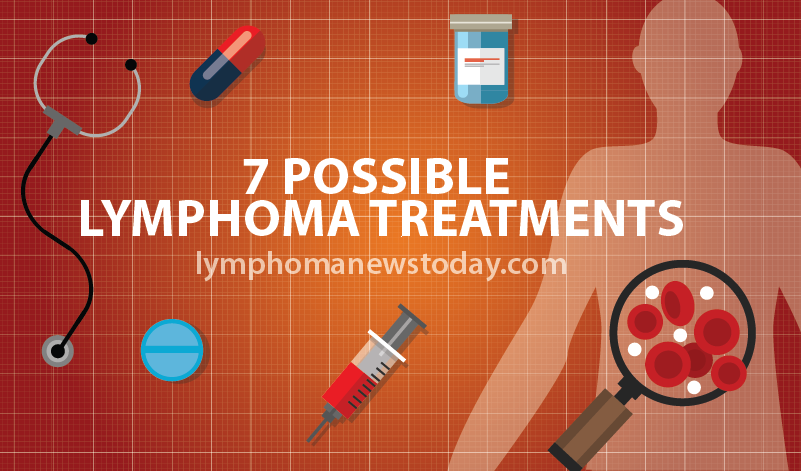Some Traditional Lymphoma Treatments
1. Chemotherapy
Chemotherapy is one of the most common types of treatment for lymphoma, alongside radiotherapy. Chemotherapy uses cytotoxic drugs (also known as anti-cancer drugs) to kill the cells damaged by cancer, which occurs when the therapy disrupts the cancer cells’ growth. It can be administered either into the vein or as tablets. Patients are often treated with CVP chemotherapy (cyclophosphamide, vincristine, and steroid prednisolone), but there are also other options. CHOP (cyclophosphamide, doxorubicin, vincristine and prednisolone), FAD (fludarabine, doxorubicin, and the steroid dexamethasone) or FMD (fludarabine, mitoxantrone, and dexamethasone) are more commonly used in the case of recurrent cancer. Chemotherapy may be combined with biological therapy or radiotherapy.
2. Radiotherapy
It is also one of the most used types of therapy for patients with lymphoma. High-energy rays are used to eliminate the cancer cells. In cases of stage one or two lymphoma, during which the cancer is only present in one or two areas of lymph nodes, radiotherapy is applied locally, while in the cases of later stages, the radiotherapy is usually combined with chemotherapy or administered following the chemotherapy. Similar to chemotherapy, radiotherapy may also be combined with biological therapy.
3. Surgery
The least common of the traditional lymphoma treatments is surgery. It is very rarely an option due to the proven efficacy of the previous options. It may be performed to remove a limited part of an organ affected by lymphoma, such as the stomach or small bowel, or to remove the spleen, a surgery called splenectomy – in cases of splenic marginal zone lymphoma, a rare type of the disease. In addition, biopsies are a common surgical procedure used to confirm the diagnosis.
Experimental Lymphoma Treatment
4. Biological Therapy
Despite being a relatively new treatment, biological therapy is also a common option for patients with lymphoma. It consists of proteins composed in a lab based on a single copy of humanized antibody and it’s used to stop the growth and reproduction of lymphoma cells. Monoclonal antibodies (MABs) are the most common type of treatment used in patients with lymphoma and they target specific proteins on the cell surface. Rituximab (Rituxan), also known as mabthera, is usually combined with chemotherapy and radiotherapy, but there are other options such as Obinutuzumab (Gazyva), Ofatumumab (Arzerra), and Ibritumomab tiuxetan (Zevalin).
5. Steroid Therapy
Similarly to the proteins used in biological therapy, steroid therapy is a treatment designed to complement chemo or radiotherapy. Steroids are naturally produced by the body but can also be artificially reproduced in a laboratory. Steroids such as prednisolone, dexamethasone or methylprednisolone in the form of tablets or injections may be recommended for patients with lymphoma, along with chemotherapy to improve its results.
6. Bone Marrow and Stem Cell Transplants
Stem cell transplant is a novel and investigational treatment which uses patients’ own cells to create new cells and transplant them back into the body. The stem cells contained in bone marrow are collected before chemotherapy and radiotherapy, and patients will be able to receive higher doses of the treatments. This possibility happens because the aggressive chemo or radiotherapy will kill both lymphoma and healthy cells, but the patients will later receive the transplant of stem cells, which had been frozen and stored. The bone marrow and stem cell transplants are more common in cases of remission with a high probability of recurrence, second remission, or treatment-resistant lymphoma.
7. Targeted Therapy
The advancements made in the field of cancer research have recently allowed scientists to develop new types of drugs designed to target the alterations caused in the cells by cancer. Targeted therapy works differently from chemotherapy and usually has less severe side effects. The different types of targeted therapy include proteasome inhibitors like Bortezomib (Velcade), histone deacetylase (HDAC) inhibitors like Romidepsin (Istodax) or Belinostat (Beleodaq), and kinase inhibitors like Ibrutinib (Imbruvica) or Idelalisib (Zydelig).
Alternative Lymphoma Treatment
There is no scientific proof that alternative medicine is able to cure lymphoma, but it can help patients deal with the symptoms, as well as with the stress associated with a cancer diagnosis. Acupuncture, aromatherapy, massage, meditation and relaxation techniques are some of the options available for patients suffering from lymphoma.
Learn more about lymphoma here: http://bit.ly/1UwWKe6
Lymphoma News Today is strictly a news and information website about the disease. It does not provide medical advice, diagnosis or treatment. This content is not intended to be a substitute for professional medical advice, diagnosis, or treatment. Always seek the advice of your physician or other qualified health provider with any questions you may have regarding a medical condition. Never disregard professional medical advice or delay in seeking it because of something you have read on this website.


